Streeting: No promises on dental reform timetable
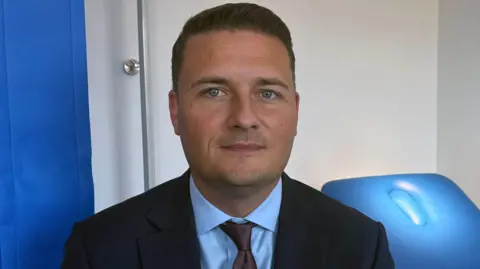 BEN SCHOFIELD/BBC
BEN SCHOFIELD/BBCThe health secretary has refused to set out a timetable to fulfil one of Labour's main manifesto election promises on the NHS.
As part of the election campaign, the government had said it would reform the dental contract - the framework which pays NHS dentists.
Despite beginning talks with the British Dental Association (BDA) a year ago, Wes Streeting told the BBC during a visit to Bedfordshire that "unless I am 100% certain I can achieve the promise, I don't make it".
Pam Widdison, from Norfolk, said she was in pain for months because she did not have an NHS dentist and was "sick of MPs promising the earth" then failing to deliver.
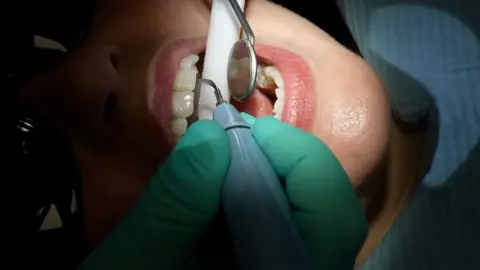 QAYS NAJIM/BBC
QAYS NAJIM/BBCThe dental contract was recently highlighted by the Public Accounts Committee as one of the main reasons for the NHS dentistry access crisis
Speaking on a visit to a GP surgery in Leighton Buzzard, Streeting told the BBC he was "hesitant to make specific promises about dates and deadlines" unless he knew he could fulfil them.
"There's one thing that is in even shorter supply than dentists and money in this country and that's trust in politicians," he said.
The government's newly published 10-year health plan said by 2035 a new dental contract would be at the heart of a "transformed" NHS system.
But Streeting said in the short term it would concentrate efforts on creating urgent dental appointments for people without a dentist and rolling out tooth brushing in schools.
He stressed that the NHS was the "standout" winner in the recent spending review, giving the health department "a bit of extra capacity".
But he admitted the situation was "challenging" and said he was looking at existing budgets to see how he could release money that was being "wasted".
To reduce what it called "bureaucracy", the government has decided to abolish NHS England.
Forty-two integrated care boards across the country have also been told to reduce their running costs by 50% by the end of the year and thousands of support roles are going at NHS trusts including hospitals.
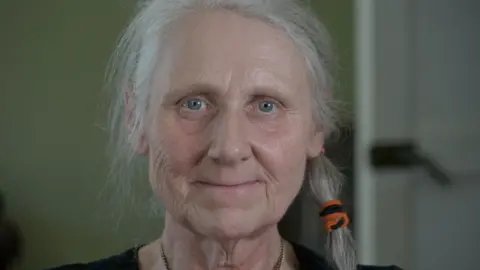 QAYS NAJIM/BBC
QAYS NAJIM/BBCCounties such as Norfolk have been labelled "dental deserts" because of the shortage of NHS Dentists.
Pamela Widdison, a retired teacher from Watton, said she was in pain for seven months.
She managed to get an emergency appointment for a tooth extraction but had to travel 20 miles to King's Lynn and still did not have an NHS dentist.
"It's a two-tier system in this country," she said.
"I'm sick of MP's promising us the earth... why should we have to suffer? We've got an increased population where I live, there should be equality of care.
"I do not want anyone to experience what I have been through."
She said she believed dentistry was a "vital infrastructure" and could not understand why the NHS was paying for weight loss injections while her town did not have an NHS dentist.
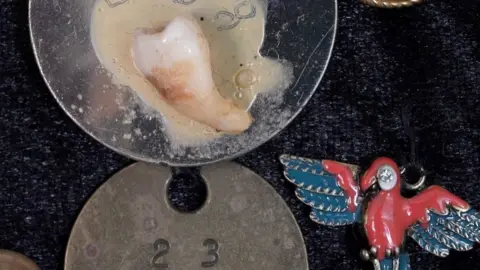 QAYS NAJIM/BBC
QAYS NAJIM/BBCTo improve access, the University of East Anglia (UEA) in Norwich has been lobbying for the first dental training school in the east of England.
Pro-vice-chancellor for medicine, Prof Philip Baker, admitted it would not solve everything overnight but would be "one contributor to really make a difference".
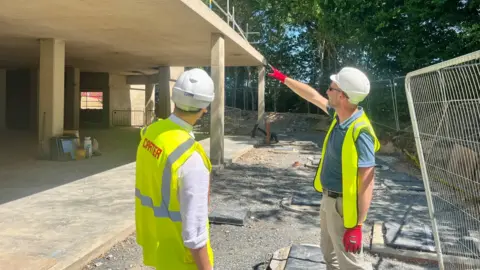 NIKKI FOX/BBC
NIKKI FOX/BBCThe nearest dental school to Norwich is 100 miles away in London.
The UEA had its course approved by the General Dental Council but needed the government to rubber-stamp its application.
The 10-year-plan said that newly-qualified dentists could be required to practice in the NHS for a minimum period of three years.
Prof Baker said the UEA would do all it could to convince trainees to stay in the NHS permanently.
"Our dental graduates will understand the needs of their communities, understand how important having an NHS dental service is to the region.
"I guess we really want to instil that pride and that loyalty to the community."
Streeting said he "would consider the case very carefully."
Follow East of England news on X, Instagram and Facebook: BBC Beds, Herts & Bucks, BBC Cambridgeshire, BBC Essex, BBC Norfolk, BBC Northamptonshire or BBC Suffolk.
